

WASHINGTON—President-elect Donald Trump was crucial to House Speaker-elect Mike Johnson’s (R-La.) victory on the first round of voting, Rep. Ralph Norman (R-S.C.) told reporters after the vote.
Near the end of the first, and only, round of voting for the speaker—a task the House must perform before members can be sworn in—Johnson seemed poised to fall short of the 218 votes he needed, despite Trump’s support for his bid.

Rep. Mike Johnson (R-La.) (L) speaks with Reps. Ralph Norman (R-S.C.) (C) and Keith Self (R-Texas) as the House votes for Speaker of the House on the first day of the 119th Congress in the House Chamber of the U.S. Capitol Building on Jan. 3, 2025. Win McNamee/Getty Images

House Speaker-elect Mike Johnson (R-La.) speaks after he won the vote for speaker of the House, during the first day of the 119th Congress in the House Chamber at the U.S. Capitol on Jan. 3, 2025. Mandel Ngan/AFP via Getty Images
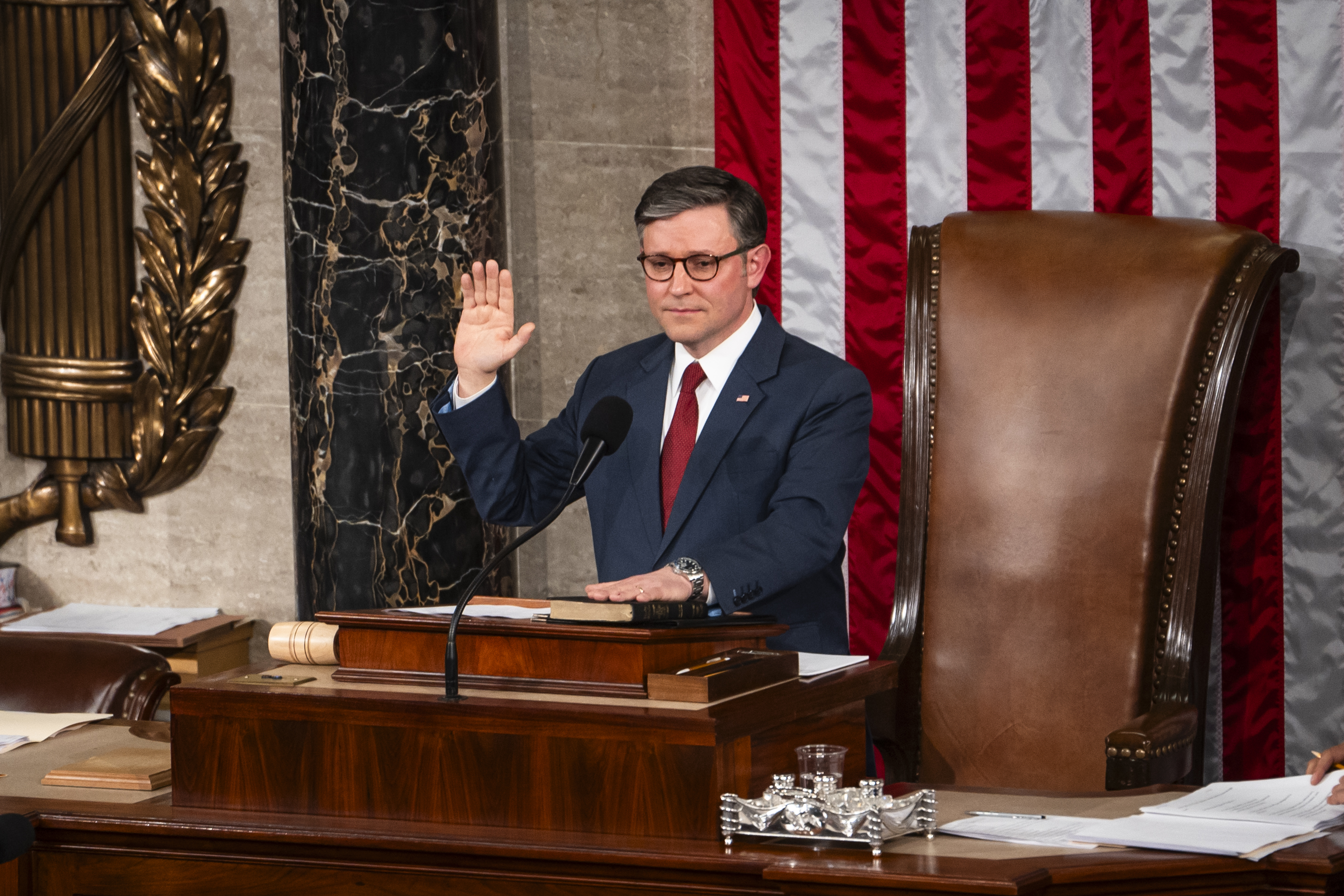
House Speaker-elect Mike Johnson (R-La.) is sworn in after winning the speakership during the first sitting of the 119th Congress in Washington on Jan. 3, 2025. Madalina Vasiliu/The Epoch Times
The U.S. House of Representatives on Jan. 3 elected Rep. Mike Johnson (R-La.) to reprise his role leading the lower chamber.
In a 218–215 vote, Johnson was elected on the first ballot despite short-lived hiccups early in the vote.
There were initially signs of a brewing mutiny among the House GOP caucus, as several members—beginning with Reps. Thomas Massie (R-Ky.) and Chip Roy (R-Texas)—expressed reservations or outright opposition to Johnson.
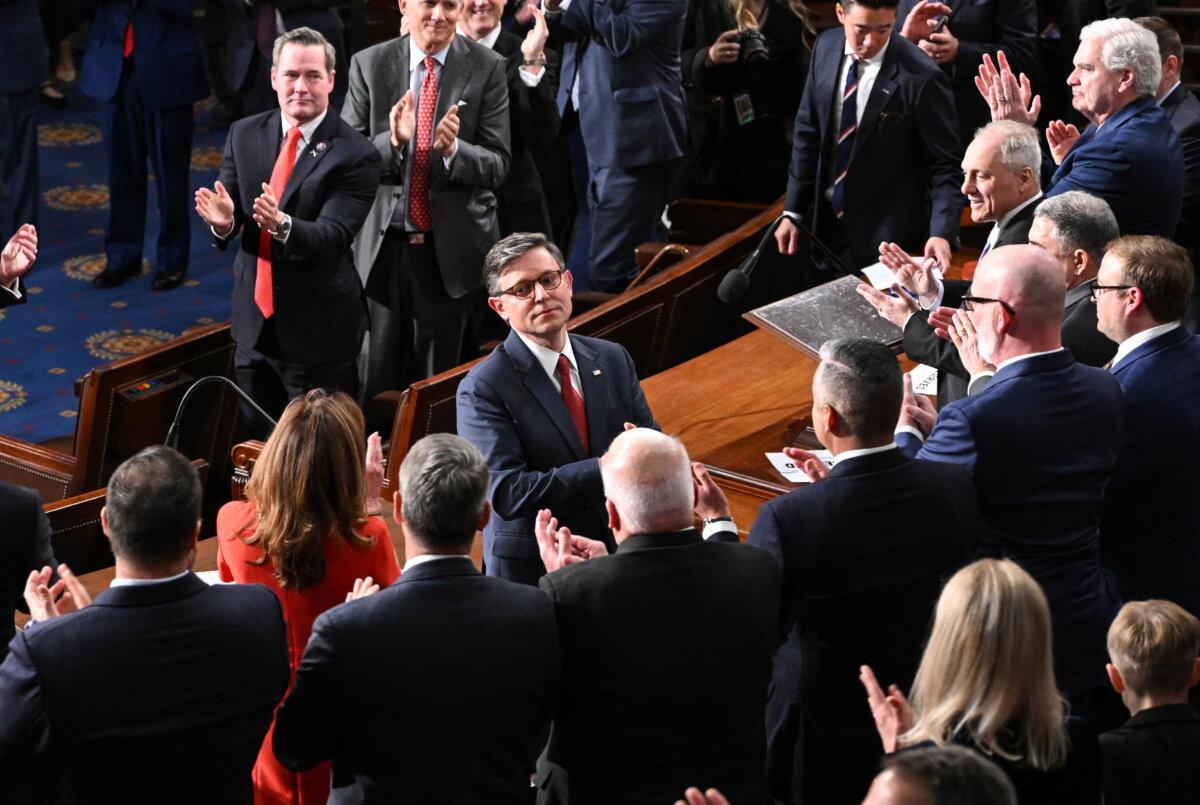
House Speaker-elect Mike Johnson (R-La.) receives applause after winning the vote for speaker of the House, during the first day of the 119th Congress in the House Chamber at the U.S. Capitol in Washington on Jan. 3, 2025. Mandel Ngan/AFP via Getty Images
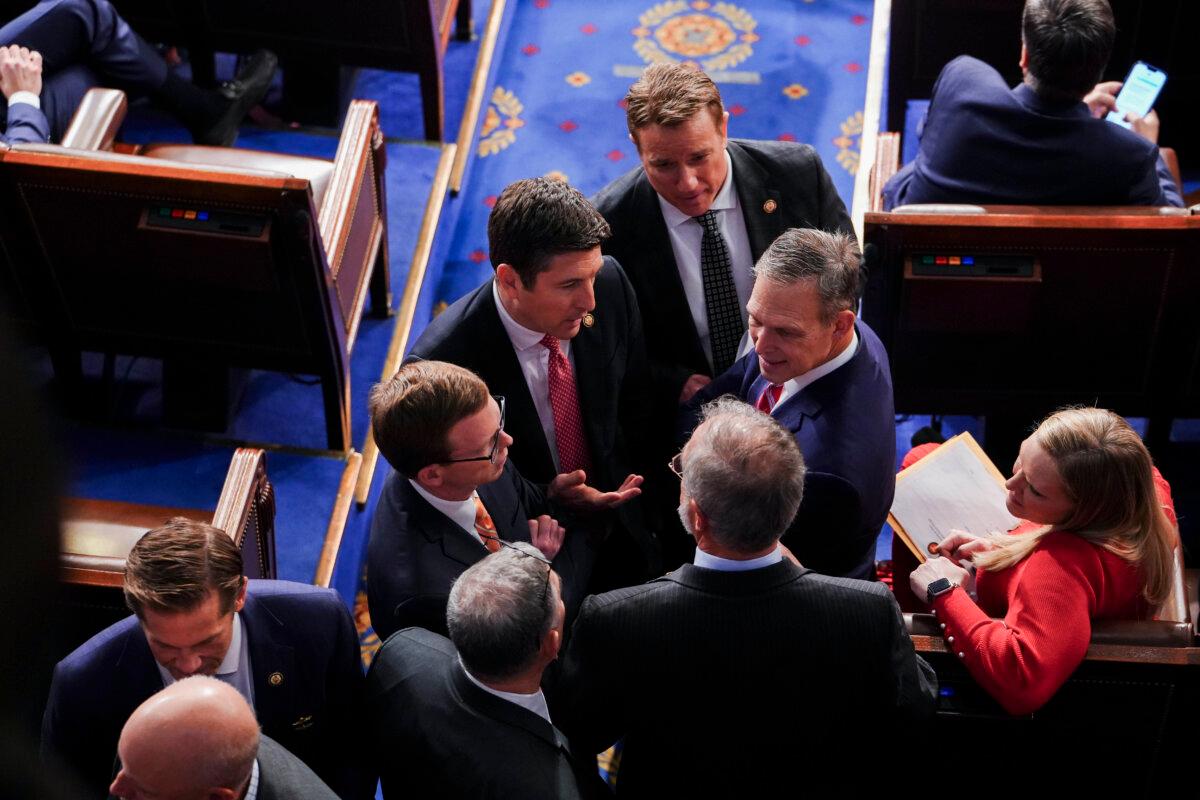
Republican House Representatives speak during the first sitting of the 119th Congress in Washington on Jan. 3, 2025. Madalina Vasiliu/The Epoch Times
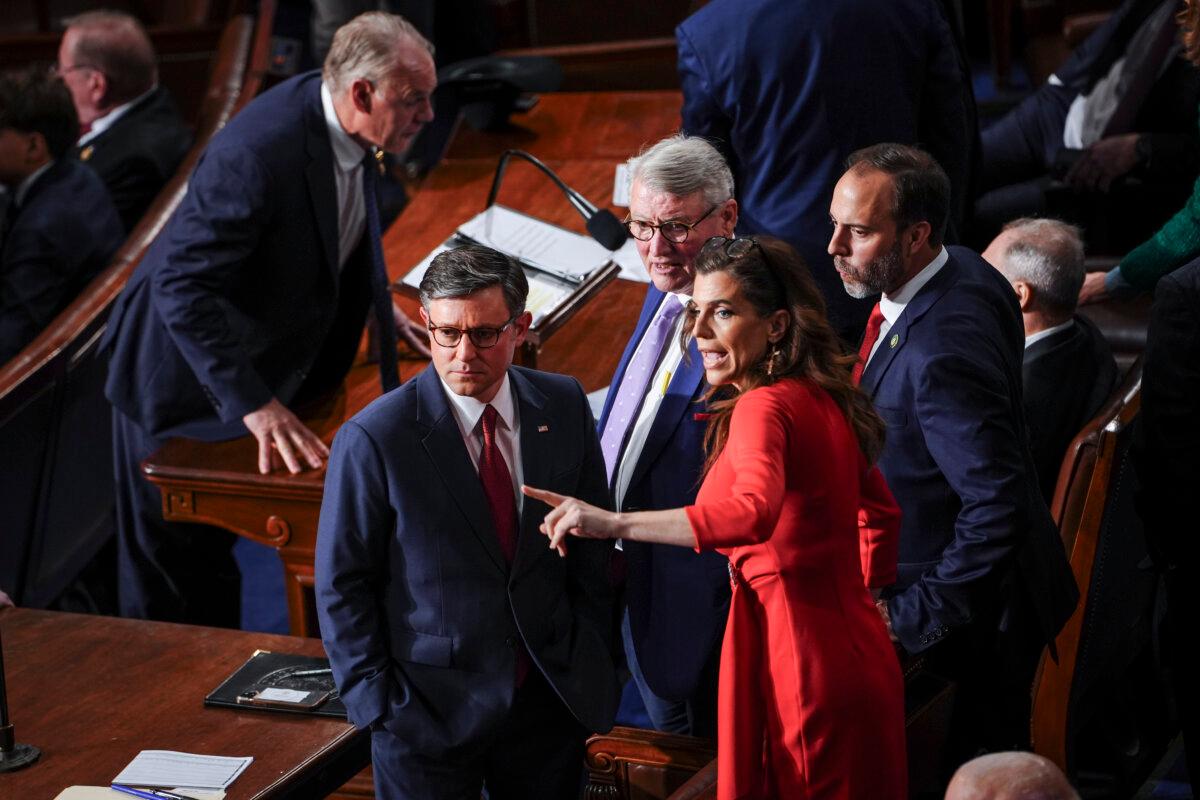
House Speaker nominee Mike Johnson (R-La.) speaks with Rep. Nancy Mace (R-S.C.) on the first sitting of the 119th Congress in Washington on Jan. 3, 2025. Madalina Vasiliu/The Epoch Times

House Speaker Mike Johnson (R-La.) listens during a Hanukkah reception at the U.S. Capitol on Dec. 17, 2024. Anna Moneymaker/Getty Images
News Analysis
As potentially extended battles to elect new speakers of the House of Representatives become more frequent, a common fear is repeatedly expressed in the national news media that the chamber cannot act until the new speaker is chosen.
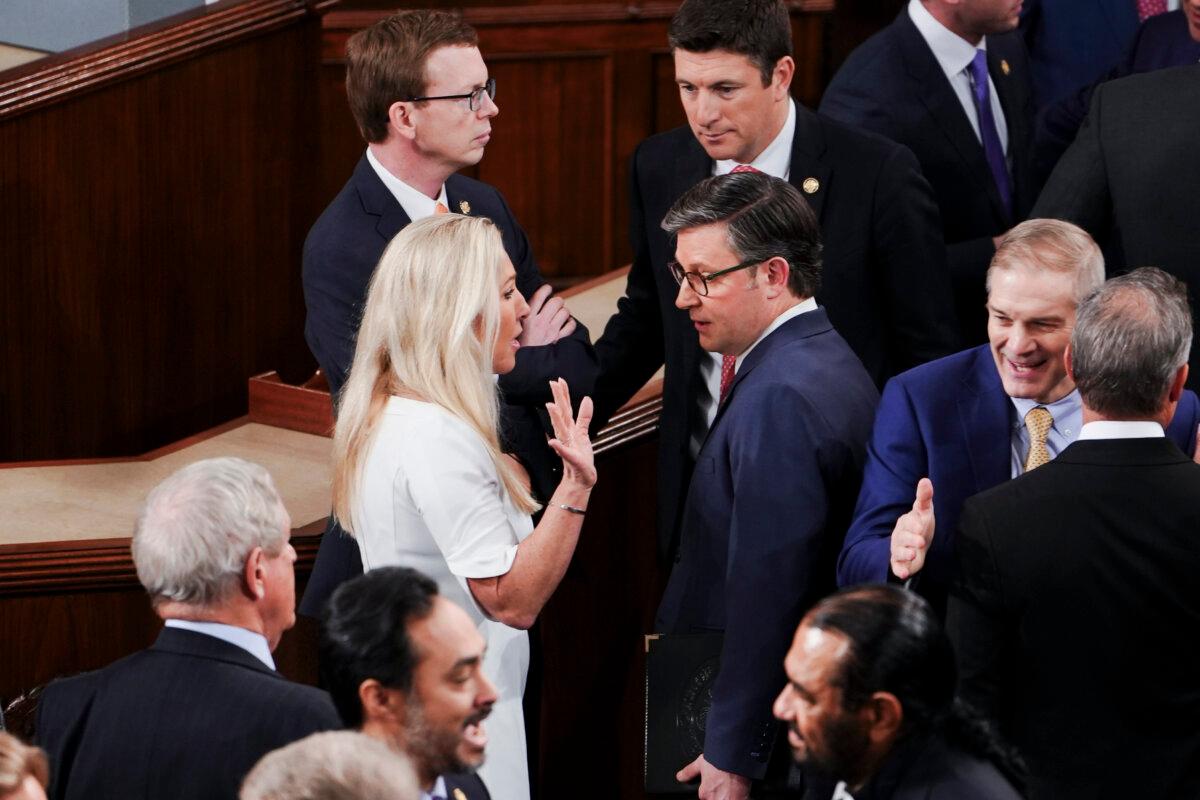
House Speaker nominee Mike Johnson (R-La.) speaks with Rep. Marjorie Taylor-Greene (R-Ga.) on the first sitting of the 119th Congress in Washington on Jan. 3, 2025. Madalina Vasiliu/The Epoch Times
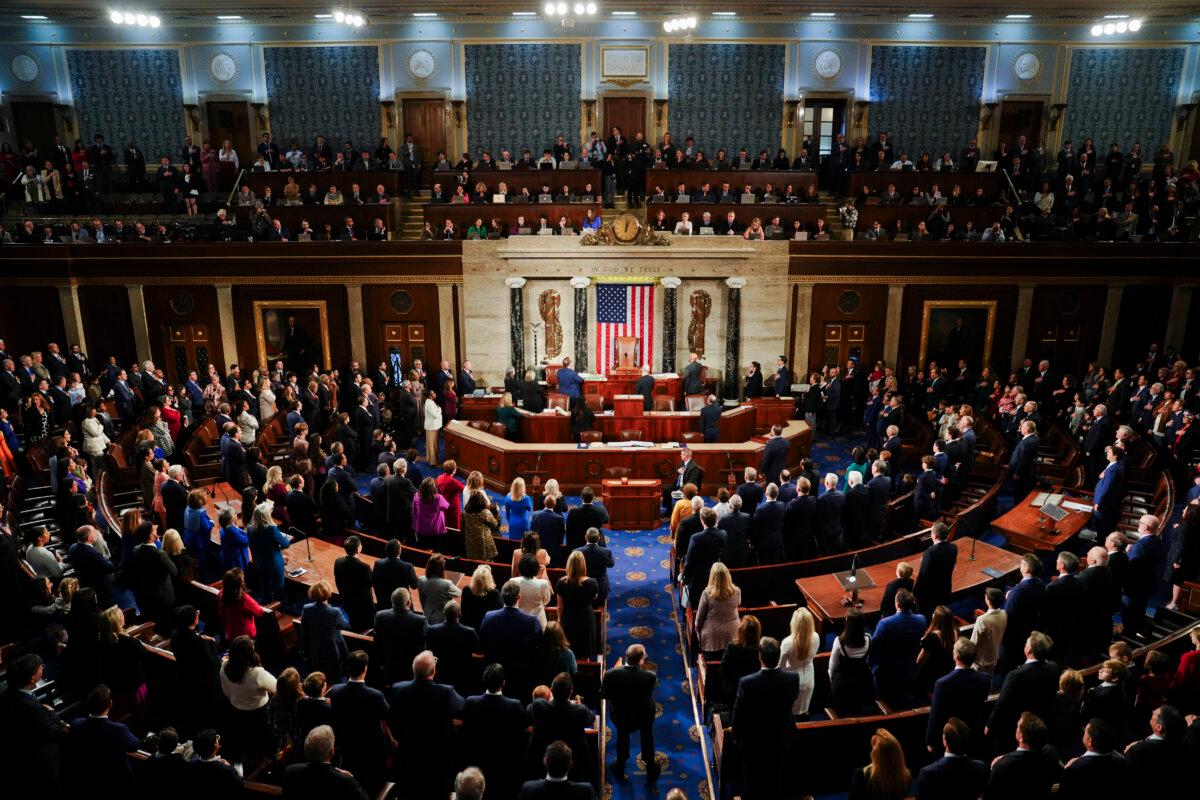
The U.S. House of Representatives convenes for the first sitting of the 119th Congress in Washington on Jan. 3, 2025. Madalina Vasiliu/The Epoch Times
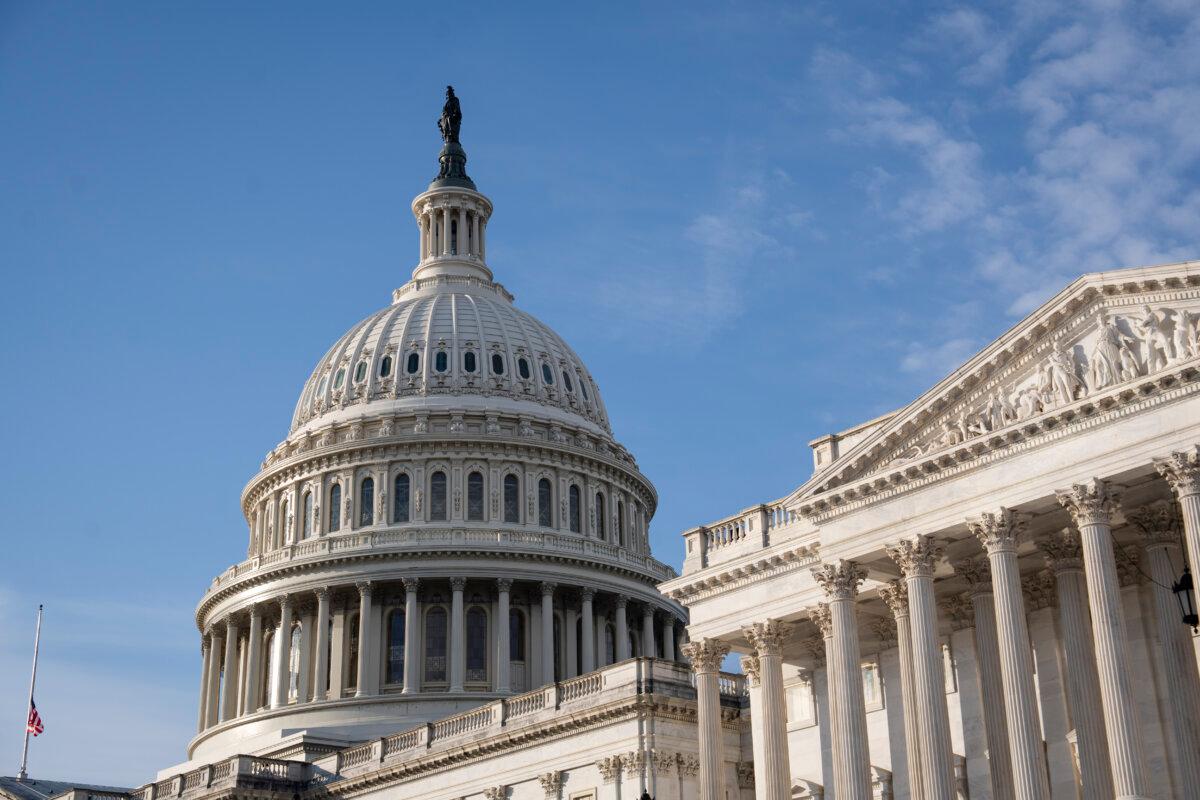
The U.S. Capitol building on the opening day of the 119th Congress in Washington on Jan. 3, 2025. Madalina Vasiliu/The Epoch Times
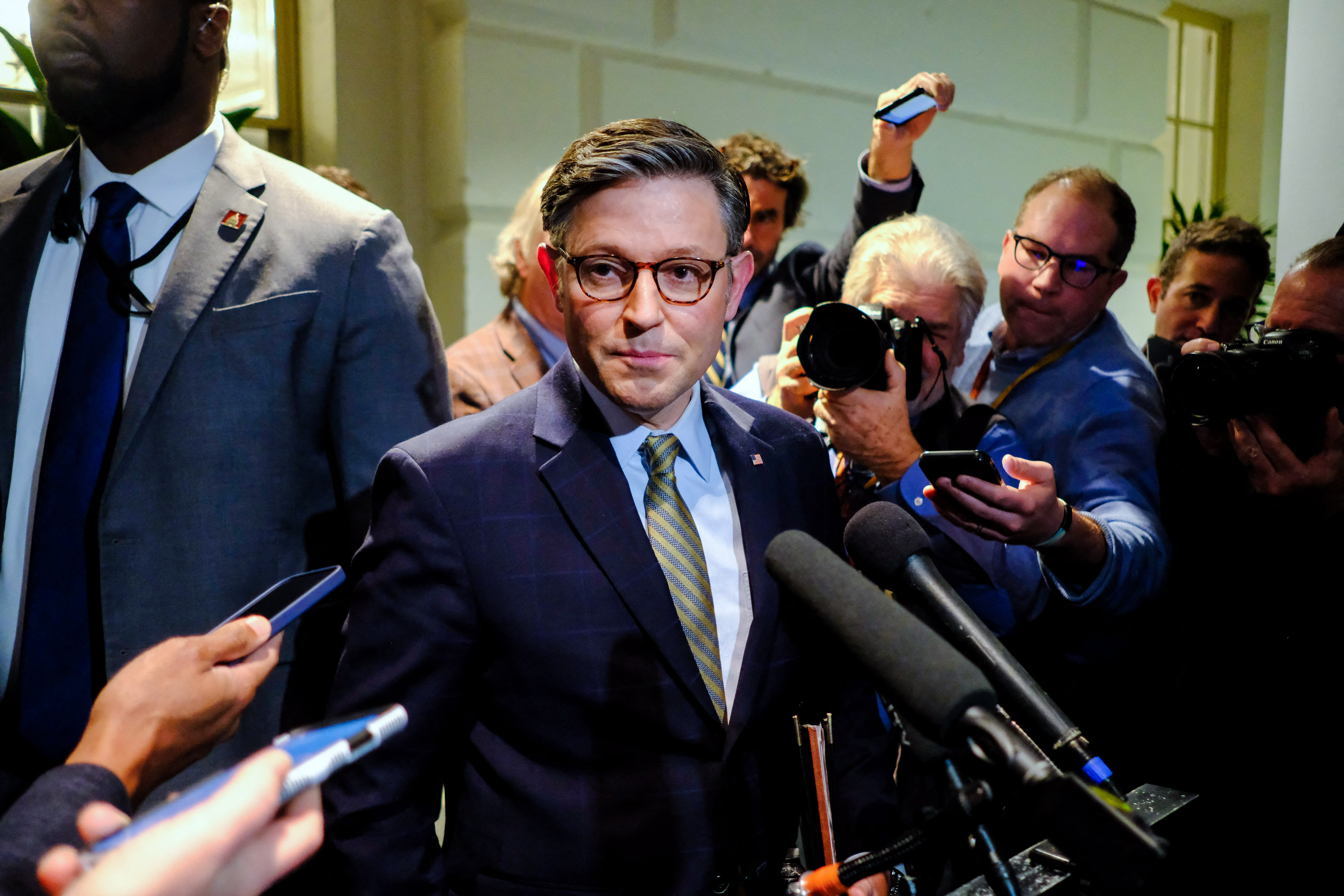
House Speaker Mike Johnson (R-La.) talks to reporters at the Capitol on Dec. 20, 2024. Richard Pierrin/AFP via Getty Images
WASHINGTON—The 119th Congress of the United States will take office on Jan. 3, 2025, for a two-year term extending until Jan. 3, 2027. Republicans will hold a slim majority in both the Senate and the House of Representatives.
With a Republican administration leading the executive branch, it is expected that Congress will attempt to enact conservative policies into law.
These efforts will not be unfettered. Obstacles include the Senate’s cloture vote requirement—the support of 60 senators is necessary to overcome a filibuster—and divisions in the House Republican Conference amid its single-digit majority.
WASHINGTON—House Speaker Mike Johnson (R-La.) has only one goal on the first day of the new Congress: keeping his job and tamping down a potential Republican mutiny.
On Jan. 3 at 12 p.m. ET, the 119th Congress will have its first sitting. Its first order of business is to choose a speaker: No other official business, including the Jan. 6 certification of President-elect Donald Trump’s election victory, can take place prior to the election of a speaker.
In order to keep the gavel, Johnson will need to win a majority of votes in the full House, though the threshold varies based on how many seats are vacant and how many lawmakers actually take part in the vote.
If the full House votes, as is likely, Johnson will need 218 Republicans to vote for him—a tall order, given that Republicans enter with 219 seats, and at least one Republican outright opposes him. One seat, that of Rep. Matt Gaetz (R-Fla.), is currently vacant, bringing the total of the full House to 434 members.
Johnson is favored to keep his position—but that could be easier said than done. Even with President-elect Donald Trump’s backing, several House Republicans have said publicly that they’re undecided or outright opposed to giving Johnson another turn with the gavel.
The situation is reminiscent of the start of the previous 118th Congress, in which it took five days and 15 ballots to name Rep. Kevin McCarthy (R-Calif.) as speaker. Like Johnson, McCarthy faced questions about his conservative credentials and establishment ties.
Johnson enters the day in a stronger position—but far from a certain one.
“There will be no Democrats available to save him,” House Minority Leader Hakeem Jeffries (D-N.Y.) told MSNBC.
Still, Johnson has said he’s optimistic about his chances.
“We’re going to get this done,“ Johnson told Fox News. ”We cannot afford any palace drama here. We have got to get the Congress started, which begins tomorrow, and we have to get immediately to work. …We have to stay unified. The American people gave us a mandate.”
Normally, a handful of GOP dissenters wouldn’t be much of a problem for a would-be speaker: Few Republican speakers ever achieve unanimous support from their ideologically diverse conference.
This time, in the incoming Congress, the narrow Republican majority means that every defection is potentially crippling to Johnson, who can spare no more than one GOP opponent.
So far, one Republican, Rep. Thomas Massie (R-Ky.), has expressed hardline opposition to Johnson’s bid, saying in a post on X, “On January 3rd, 2025, I won’t be voting for Mike Johnson.

Rep. Thomas Massie (R-Ky.) speaks at a House Second Amendment Caucus press conference at the U.S. Capitol in Washington on June 8, 2022. Kevin Dietsch/Getty Images
“I hope my colleagues will join me because history will not give America another ‘do-over,’” Massie said, comparing Johnson to former House Speaker Paul Ryan (R-Wis.), who clashed openly with the president-elect during his first term.
Mounting Reservations
Some Republicans have also expressed reservations. They feel that Johnson failed to gain enough wins during his first term and have condemned his decisions on government funding and other legislation.
Rep. Chip Roy (R-Texas) was the second Republican to indicate concerns about Johnson.
“I remain undecided, as do a number of my colleagues, because we saw so many of the failures last year that we are concerned about that might limit or inhibit our ability to advance the president’s agenda,” Roy told Fox Business on Dec. 31.
Members of the House Freedom Caucus could be a particular problem for Johnson. Rep. Ralph Norman (R-S.C.), a member of the influential caucus, told The Epoch Times that they had a meeting about the vote on Jan. 2, but no details of the meeting were disclosed.
Rep. Andy Harris (R-Md.), the House Freedom Caucus’s chairman, is undecided, his spokesperson Anna Adamian told The Epoch Times on Dec. 31.
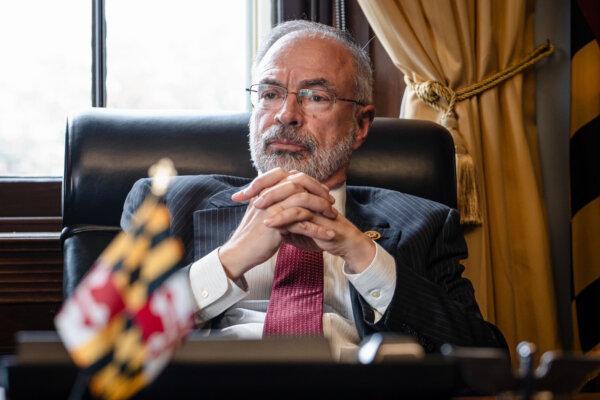
The chairman of the House Freedom Caucus, Rep. Andy Harris (R-Md.), speaks during an interview with The Epoch Times at his office on Capitol Hill in Washington on Nov. 20, 2024. Madalina Vasiliu/The Epoch Times
Rep. Andy Biggs (R-Ariz.) indicated he’s in the same boat.
“I haven’t publicly or privately committed yet,” Biggs told Fox News on Dec. 30. “I do want to speak with the speaker just to see what his plans are, because there are some issues that I think need to be worked out, specifically dealing with the budget issues.”
Rep. Victoria Spartz (R-Ind.) also hasn’t made a decision about her vote yet, she told reporters in the Capitol on Jan. 2.
In an interview on “Fox and Friends” earlier the same week, Spartz hinted at the reasons for her reservations, suggesting that she was unimpressed by Johnson’s record in his first term.
“Unfortunately we will not be able to deliver on President Trump’s agenda … if we don’t have a Speaker with courage, vision, and a plan,” Spartz said.
Greene could also come out against Johnson, with whom she’s had a handful of high-profile clashes in the past.
In November, Greene told The Epoch Times she wouldn’t mount a challenge to Johnson, citing the lack of declared challengers and the conference’s unanimous decision to nominate him. That position could also change as pressure mounts from other Republicans.
Original News Source Link – Epoch Times
Running For Office? Conservative Campaign Consulting – Election Day Strategies!

